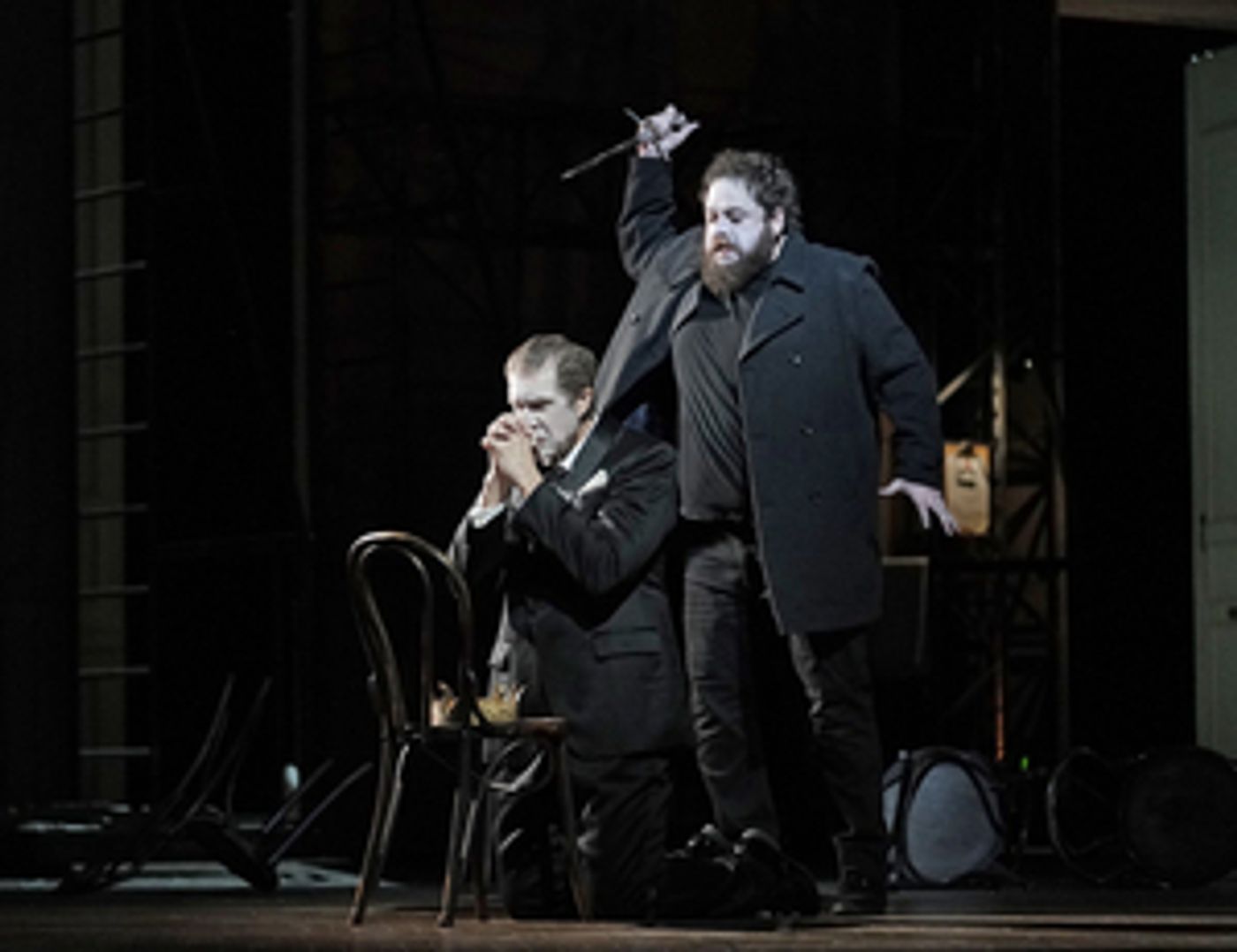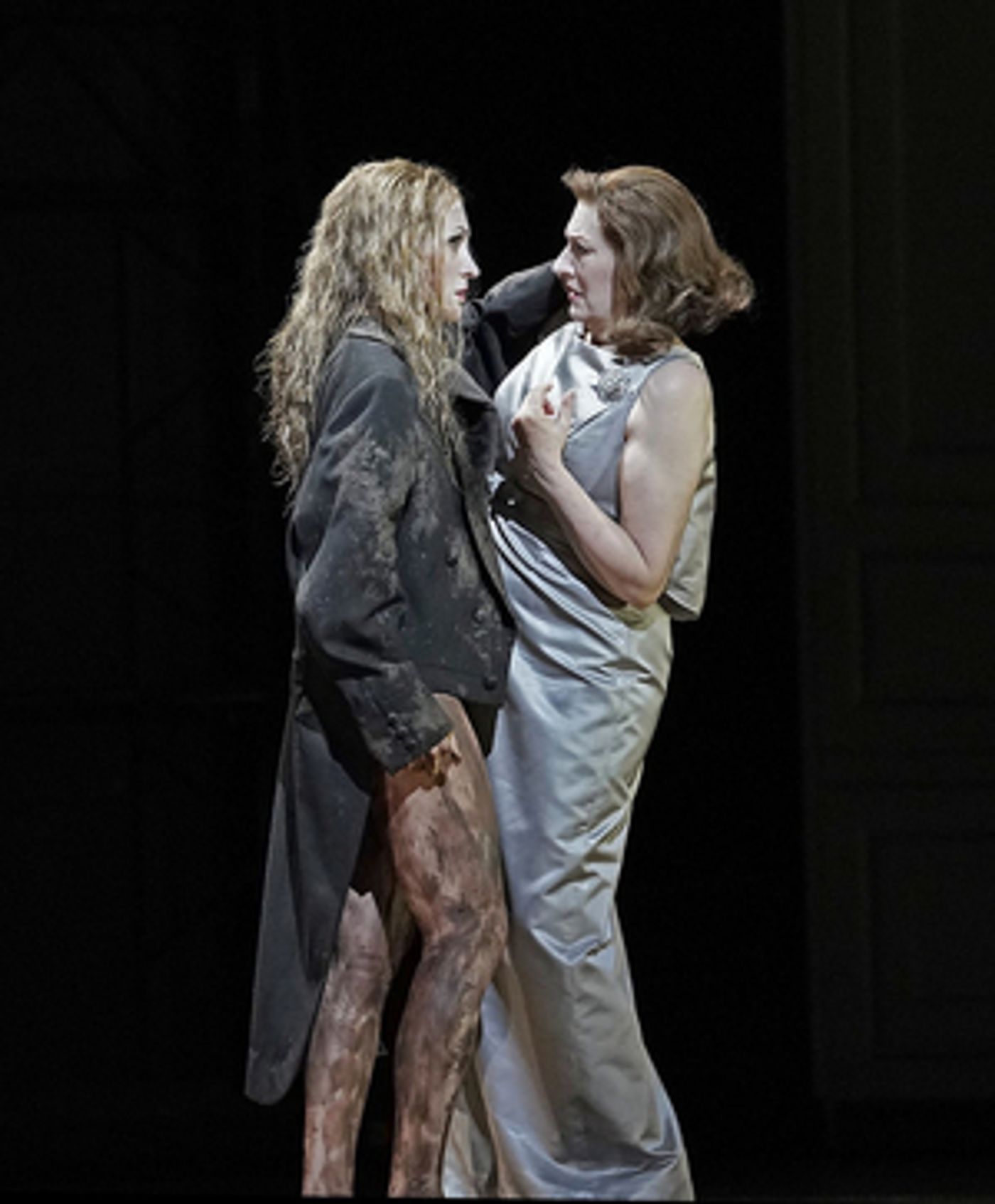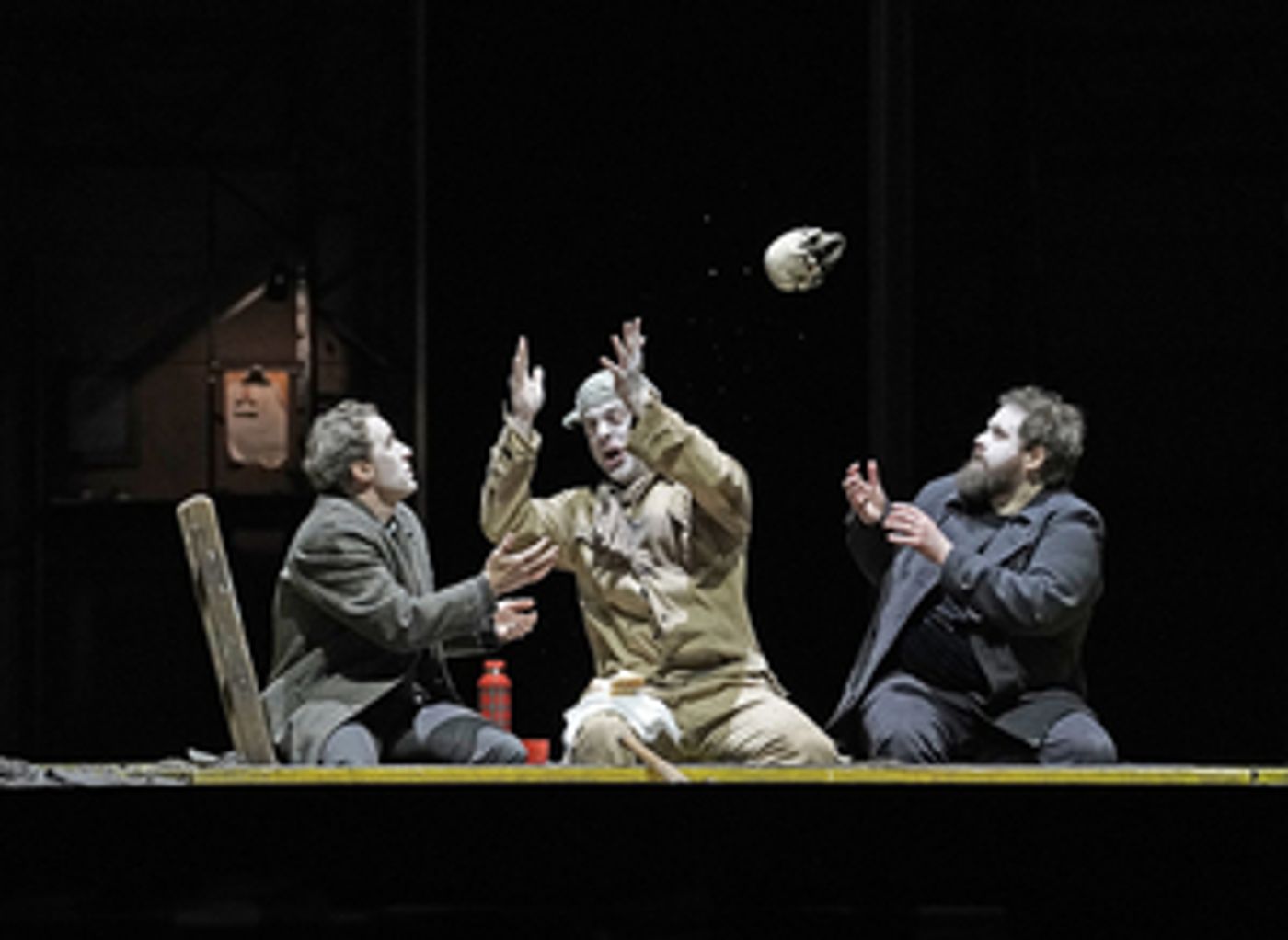Review: New HAMLET Makes Its Mark at the Met with Stellar Cast, Impressive Production
“To be or not to be” may be the most quotable quote from “Hamlet” and moving it up in the opera gets things going quickly

Karen Almond/Met Opera
"Neither a borrower nor a lender be," "This above all, to thine own self be true," "...to the manner born," "That one may smile and smile and be a villain," "Brevity is the soul of wit," "The lady doth protest too much," "Goodnight, sweet prince," "The rest is silence," "A hit, a palpable hit" and perhaps most appropriately, "Something is rotten in the state of Denmark."
Is there another Shakespearean drama filled with as many quotable quotes as "Hamlet" (even when they're used out of context and given a foreign meaning)?
But "To be or not to be" is surely the most referenced and, certainly, in the new operatic HAMLET currently at the Met by Brett Dean and Matthew Jocelyn, in Neil Armfield's thoughtful, urgent production, it's given the best showcase. Indeed, it helps shed a different light on the hero of the story.

Photo: Karen Almond/Met Opera
By moving the line up in Brett Dean's libretto from Act III in Shakespeare's original--which will be heard at the Met through June 9--the state of the hero is quite telling. After a rumbling, foreboding overture, by the Met's stellar players under the baton of Nicholas Carter that gives us a hint that there's something, indeed, rotten in the state of Denmark, Hamlet's take on the situation--his quick talk of his state of mind after the untimely death of his father--certainly clinches it for us.
It takes guts to take a great play and turn it into an opera but Dean and Jocelyn have largely succeeded. They make it clear, indeed, that it's not just Denmark that has its problems but the title character himself: He's mad as a hatter from the very start of the piece.
Even his mother, Queen Gertrude, subtlely portrayed and sung by Sarah Connolly, remarks on the state of his grief, but chastises him for it, calling it "unmanly." The wonderful production from Armfield, has designer Ralph Myers' mostly exciting setting with Jon Clark's lighting, which is adapted from its premiere at England's Glyndebourne Festival, and Alice Babidge's timeless costumes.

Photo: Karen Almond/Met Opera
If you couldn't tell from the title character's demeanor that not only is something rotten in the state of Denmark, but with the character himself, his talk of death and suicide would certainly clinch it. In cutting the action of the play down to size--which runs around four hours on a good night--the score (running less than 3 ½) has taken a somewhat irreverent look at the original order of things. It makes it clear--in the Armfield production at least--that this is not your parents' version of the story. It's trimmed, reshaped and recast. Yet, what's old is new again--things seem familiar, even when they aren't.
The score--fractured not only in its sound but by the placement of musicians around the house, better to engulf the audience with the story and its sound--is put across thrillingly by the cast (and of course the marvelous Met orchestra and chorus). My main quibble is that sometimes it is way too noisy in its orchestration for the singing to be understood. The titles were definitely needed in this English-language opera.
Three cheers for tenor Allan Clayton, physically cast against type (no elegant Olivier here, despite the opera's banner outside the house with Sir Laurence's image holding Yorick's skull). Yet he's as moving and lithe as any Hamlet should be (watch his ferociously elegant swordplay!), with a voice that ranges from the lyrical to the stretched, the woeful to the demented.
Soprano Brenda Rae's Ophelia is spectacular and, frankly, unexpected from her past portrayals. She isn't the wilting rose that we've come to expect from Hamlet's love, and when it comes to her mad scene, coated in mud and filled with distress, she is an eerie presence that is unforgettable. This is, of course, partly from the creators but certainly calls on some inner resources of her own.
There are other notable players in the cast--tenor David Butt Philip as Ophelia's brother, a fierce Laertes; tenor William Burden as their cool father, Polonius; baritone Rod Gilfry as the elegant, murderous Claudius. If Rosenkrantz and Guildenstern--the countertenors Aryeh Nussbaum Cohen and Christopher Lowrey-somehow seem more Stoppard (or Lewis Carroll?) than Shakespeare, it certainly isn't the fault of the agile singers.
But special kudos must go to bass-baritone John Relyea in his triple appearance as the ghost of Hamlet's father, the gravedigger and the Player King (who has the added "Remember me" said to Hamlet, not in the original but a brilliant addition). Relyea plays so many roles so well at the Met, it's easy to take him for granted; his appearances here show clearly that he should not be.
There are only three more performances of HAMLET this season: May 31, June 4 and June 9. Who knows when we'll see it again? The June 4 matinee will be screened live as part of the Met: Live in HD series, sent to theatres around the world. For more information on tickets to the theatre in New York and venues for the broadcast, see the Met's website.
Reader Reviews
Videos

